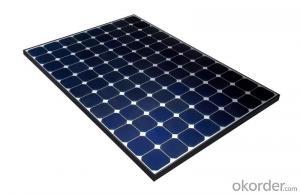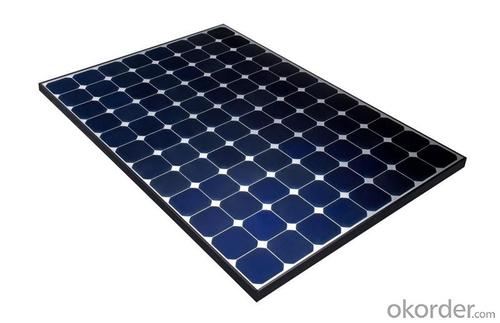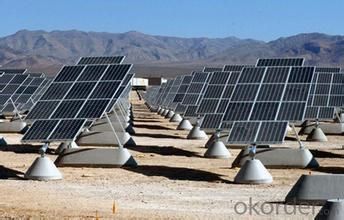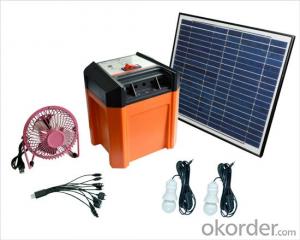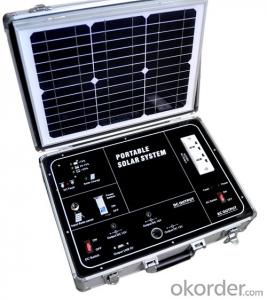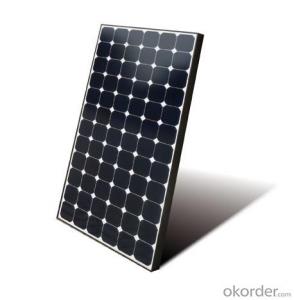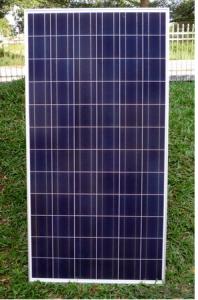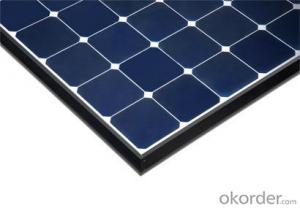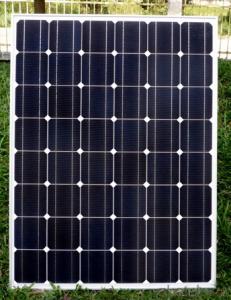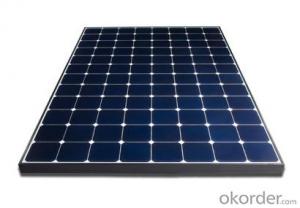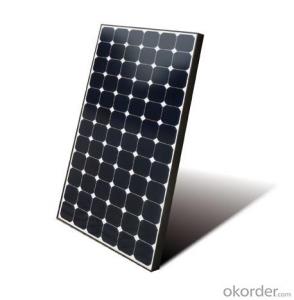CNBM Poly 200W Off Grid Solar Energy Systems Ambleside with 10 Years Warranty
- Loading Port:
- Tianjin
- Payment Terms:
- TT OR LC
- Min Order Qty:
- 100 watt
- Supply Capability:
- 1000 watt/month
OKorder Service Pledge
OKorder Financial Service
You Might Also Like
Specification
CNBM Poly 200W Off Grid Solar Sytem with 10 Years Warranty
Product description
Off-the-grid is a system and lifestyle[1] designed to help people function without the support of remote infrastructure, such as anelectrical grid. In electricity, off-grid can be stand-alone power system or mini-grids typically to provide a smaller community with electricity. Off-grid electrification is an approach to access electricity used in countries and areas with little access to electricity, due to scattered or distant population. The term off-the-grid (OTG) can refer to living in a self-sufficient manner without reliance on one or more public utilities. People who adopt this lifestyle are called off-gridders.[2]
The State of California is encouraging solar and wind power generation that is connected to the electrical grid to avoid the use of toxic lead acid batteries for night time storage.[12] Grid-tie systems are generally less expensive than off-grid systems due to the lack of additional equipment like charge controllers and the batteries. However, some systems may mitigate this difference by using old car batteries that can no longer supply enough current to start a car.[13]
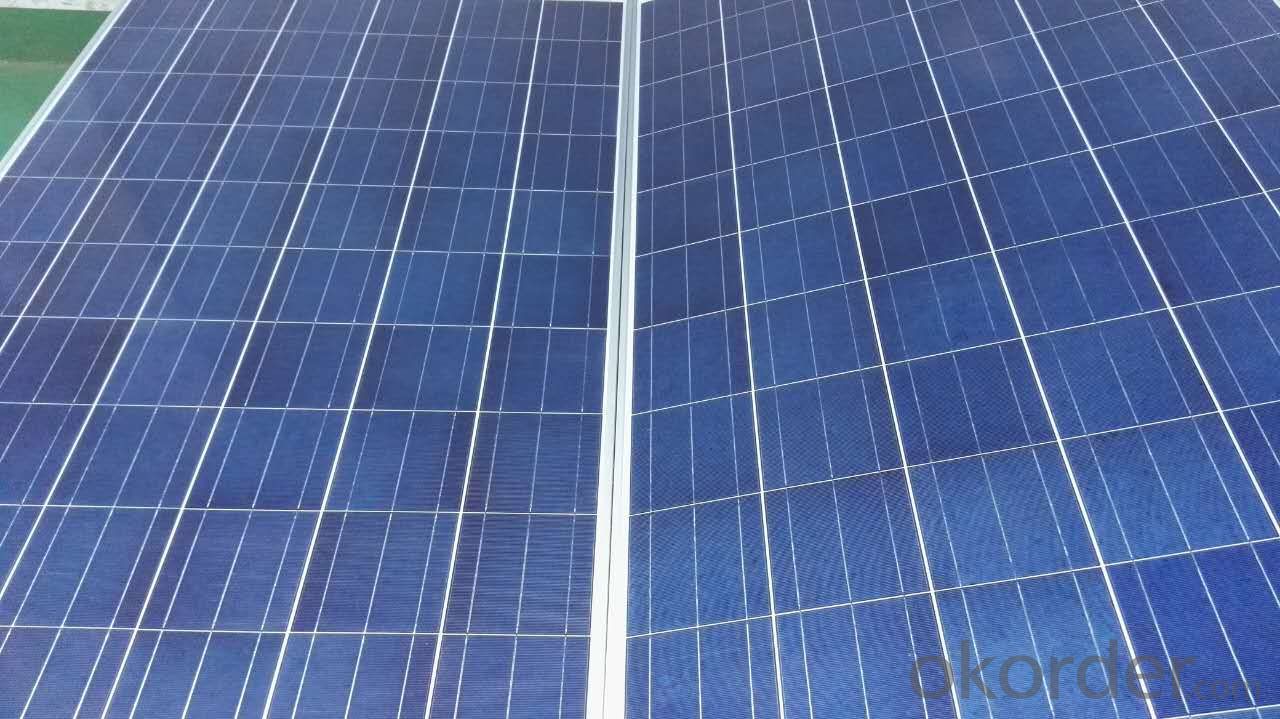
Application
Residential
Commercial
Industrial
Feature
Off-the-grid homes are autonomous; they do not rely on municipal water supply, sewer, natural gas, electrical power grid, or similar utility services. A true off-grid house is able to operate completely independently of all traditional public utility services. The idea has been recently popularized by certain celebrities including Ed Begley, Jr.[3] who stars in the Living with Ed[4] television show on the Home & Garden Television (HGTV) network. Actress Daryl Hannah promotes off-grid living and constructed her home in Colorado according to those principles, as does survival expert and Dual Survival co-star Cody Lundin,[5] who lives in a self-designed, passive solar earth house in the high-desert wilderness of Northern Arizona, collecting rainwater, composting waste, and paying nothing for utilities.[6][7]
Packaging
With carton and box
- Q: Are there any noise concerns associated with solar energy systems?
- While solar energy systems are generally quiet, there are potential noise concerns associated with certain components of the system. The most common source of noise in solar energy systems is the inverter, which converts the direct current (DC) electricity generated by the solar panels into alternating current (AC) electricity that can be used in homes or businesses. Inverters can emit a low humming noise, similar to that of a refrigerator or air conditioning unit, but the noise level is typically very low and not considered disruptive. However, advancements in technology have led to the development of quieter inverters that produce minimal noise. Some inverters are designed with noise reduction features such as soundproof enclosures or fans with low noise levels. Additionally, the location of the inverter can play a role in minimizing noise concerns. Placing the inverter in a well-insulated area, away from living spaces, can further reduce any potential noise disturbances. It's worth noting that other components of a solar energy system, such as the mounting structures or wiring, do not produce any significant noise. Solar panels themselves do not generate noise as they rely on sunlight to generate electricity rather than any moving parts. Overall, while there may be some noise concerns associated with certain components of solar energy systems, advancements in technology and proper installation practices have significantly minimized any potential disruptions.
- Q: Are solar energy systems suitable for commercial buildings?
- Yes, solar energy systems are suitable for commercial buildings. They offer numerous benefits such as reduced energy costs, increased energy efficiency, and a positive environmental impact. Additionally, solar panels can be easily installed on rooftops or as ground-mounted systems, making them a viable option for various types of commercial buildings.
- Q: How does a solar panel convert sunlight into electricity?
- A solar panel converts sunlight into electricity through the photovoltaic effect. When sunlight hits the solar panel, it excites the electrons in the semiconductor material, creating a flow of electric current. This current is then collected and used as electricity.
- Q: What are the advantages of using solar energy systems?
- There are several advantages of using solar energy systems. Firstly, solar energy is a renewable and abundant source of power, meaning it will never run out and can be harnessed anywhere in the world. Additionally, using solar energy helps to reduce greenhouse gas emissions and combat climate change, as it produces no harmful pollutants during operation. Solar energy systems also provide energy independence, allowing individuals and communities to generate their own power and reduce reliance on traditional energy sources. Furthermore, solar energy can lead to cost savings in the long run, as it reduces electricity bills and offers potential financial incentives such as tax credits or feed-in tariffs. Lastly, solar energy systems require minimal maintenance and have a long lifespan, making them a reliable and durable option for generating clean energy.
- Q: What is the role of solar energy monitoring systems?
- Solar energy monitoring systems play a crucial role in tracking and analyzing the performance of solar power systems. They provide real-time data on energy production, consumption, and efficiency, helping to optimize energy usage, identify potential issues or malfunctions, and improve overall system performance. Additionally, these monitoring systems enable users to measure and verify the financial and environmental benefits of solar energy, ensuring that the system is operating at its maximum potential and delivering the expected return on investment.
- Q: How do solar energy systems perform in different weather conditions?
- Solar energy systems can still generate electricity on cloudy or rainy days, although their performance may be reduced compared to sunny days. However, extreme weather conditions such as heavy snow or hail can have a more significant impact on their efficiency. Overall, solar energy systems are designed to perform well in various weather conditions, but their output may vary depending on the level of sunshine available.
- Q: How do solar energy systems impact the electric utility industry?
- Solar energy systems have a significant impact on the electric utility industry by increasing the supply of renewable energy and reducing the reliance on traditional fossil fuels. This shift towards solar power has prompted utilities to adapt their infrastructure and business models to accommodate distributed generation, such as rooftop solar panels. Additionally, the integration of solar energy into the grid has led to increased grid stability and lowered electricity costs for consumers. However, it has also presented challenges for utilities in terms of managing intermittent power generation and ensuring grid reliability. Overall, solar energy systems are reshaping the electric utility industry towards a more sustainable and decentralized future.
- Q: How do solar energy systems impact the health of the population?
- Solar energy systems have a positive impact on the health of the population. They reduce air pollution by replacing fossil fuel-based energy sources, leading to improved air quality and decreased respiratory illnesses. Additionally, solar energy systems do not emit harmful pollutants during operation, reducing the risk of associated health issues.
- Q: Can solar energy systems be used in areas with limited roof space due to chimneys or vents?
- Indeed, solar energy systems can still function effectively in areas where roof space is restricted due to chimneys or vents. Although solar panels typically require unobstructed roof space to achieve optimal efficiency, there are alternative solutions accessible for areas with limited roof space. One feasible approach involves installing solar panels on adjacent flat or sloped surfaces, such as the ground or a nearby wall. These ground-mounted or wall-mounted solar systems can be adjusted to maximize exposure to sunlight, ensuring that the panels generate a substantial amount of energy. Another solution entails utilizing solar technologies specifically designed for limited roof space. For instance, solar tiles can be seamlessly integrated into the roof itself, replacing conventional roofing materials while simultaneously harnessing solar energy. These solar tiles can be installed around chimneys, vents, or any other obstructions on the roof, efficiently utilizing the available space. Furthermore, solar energy systems can be combined with other renewable energy sources, such as wind turbines or geothermal systems, to compensate for the limited roof space. By diversifying the sources of renewable energy, it becomes possible to meet the energy requirements of an area even with restricted roof space. In conclusion, despite the challenges posed by limited roof space due to chimneys or vents, there are still viable options for employing solar energy systems. By exploring alternative mounting options, utilizing solar tiles, or combining solar with other renewable energy sources, it becomes feasible to harness solar power in areas with restricted roof space.
- Q: What is the role of solar concentrators in solar energy systems?
- Solar concentrators play a crucial role in enhancing the efficiency of solar energy systems by concentrating sunlight onto a smaller area, thereby increasing the intensity of the light. This concentrated sunlight can then be converted into electricity or used for heating purposes, maximizing the energy output from the solar panels or thermal collectors.
Send your message to us
CNBM Poly 200W Off Grid Solar Energy Systems Ambleside with 10 Years Warranty
- Loading Port:
- Tianjin
- Payment Terms:
- TT OR LC
- Min Order Qty:
- 100 watt
- Supply Capability:
- 1000 watt/month
OKorder Service Pledge
OKorder Financial Service
Similar products
Hot products
Hot Searches
Related keywords
